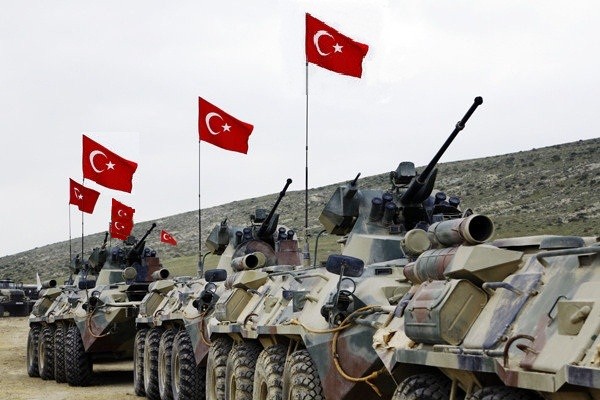Recep Tayyip Erdogan said on Sunday (January 5th) in an interview with CNN Turk, in response to a question that when Turkish troops would be dispatched to Libya, said the first batch of Turkish troops were on their way to Libya.
It is not clear, however, how many Turkish troops are going to be deployed in Libya. Erdogan, however, told CNN Turk that a senior Turkish army general would also be dispatched to Libya.
The debate on the need of Turkey’s cooperation with the Libyan National Unity Government led by Faiz al-Seraj has been going on for some time and Turkish officials and President Recep Tayyip Erdogan in particular have repeatedly emphasized on Ankara’s cooperation with and support for the National Unity Government. The Turkish parliament recently approved a plan to send troops to Libya by 325 votes for and 184 votes against. So the parliament gave the government green light to send troops to Libya, and Erdogan government was waiting for a formal request by the National Unity Government to implement the plan.
The adoption of the resolution and Turkey’s determination to boost cooperation with the Libyan government and portray it as legal have raised much debate in the political and media circles, and the question has come up as that why Libya has become so important that Turkey is willing to send its military force to that country?
In the context of this question we have to go back to the history of Turkish-Libyan relations, not at present, but in the Ottoman era, which always looked to the Mediterranean, and at that point they considered Libya the key to Africa.
Also in contemporary times and years ago, Turkey had good relations with Libya under Gaddafi and part of the bilateral ties focused on economic aspects; the presence of Turkish contractors and investors in Libya and economic relations with that country were important aspects of this cooperation.
With the fall of Colonel Gaddafi, one of the countries that suffered economically was Turkey.
But Turkey continued to follow the developments in Libya, and now, after several years, Turkey has again become supporter of a part of Libya’s establishment. In fact, it can be pointed out that Libya has been divided in recent years, a division known as the pro-General Haftar forces and another division known as the Libyan National Unity Government. Ankara backs the National Unity Government led by Faiz al-Seraj who recently asked Ankara to send troops to Libya to support his government and Turkey accepted the request.
What was said above was a historical review of the relations between Turkey and Libya. But now the question is why Turkey has turned to a policy of confrontation in the Mediterranean.
This can be categorized into several sections; first, the strategic area of the Mediterranean Sea is very vital and Ankara has given priority to apply an active policy in the Mediterranean in recent years. For at least a year now, Turkey has been in the same vein against the European and some Mediterranean countries.
There was much criticism of Ankara’s policies when Turkey determined to conduct energy drilling in Cyprus about a year ago, but it did portrayed a new situation, namely the increasing regional role of Turkey and this time in the Mediterranean, an active presence starting from Cyprus and now reaching Libya.
This seems to be a serious sign of Turkey’s aggressive foreign policy in the Mediterranean, a policy that reflects Erdogan team’s line of thinking. The second issue concerns North Africa’s importance to Turkey from an ideological point of view; after Turkish policies in Egypt in support of the Muslim Brotherhood faced a deadlock, Turkey’s attempt to pursue its ideological plans did not stop and Ankara continued to support the Muslim Brotherhood in line with its policies in North Africa.
The third case concerns the economic aspects of Turkey’s relations with Libya and the addition of energy to Turkey’s economic equations in the Mediterranean; So Libya, one of the most important African countries in the Mediterranean, also has special attractions for Turkey and that is why Ankara is trying to consolidate the National Unity Government and in doing so has come up against General Haftar and even his supporters in the region, such as Egypt and Greece. But will this Turkish policy ultimately end up in Ankara’s favor?
There are some difficulties here because of the fact that two different fronts are formed in Libya and precisely on the Turkish front are countries like Russia, while some Europeans are worried about Turkey’s Mediterranean policy, and this may have challenges for Turkey despite troop dispatch to Libya.
Despite the geographical, strategic and economic importance of Libya for Turkey, the Mediterranean movements of Ankara occur within the framework of a new policy Recep Tayyip Erdogan seeks to apply.










0 Comments